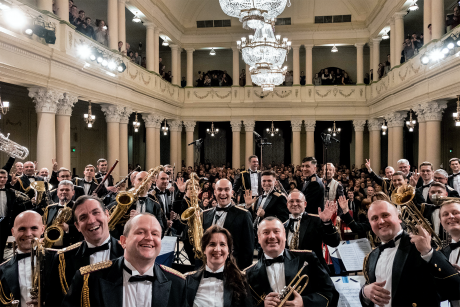Despite a weekend lockdown, which has led to a slight deacceleration in the growth of daily COVID-19 cases and stabilization of daily deaths, the resources of Ukraine's healthcare system remain extremely stressed as patients are left literally gasping for air. As with many other instances of state negligence in Ukraine, volunteers are struggling to fill in the gaps with oxygen procurement.
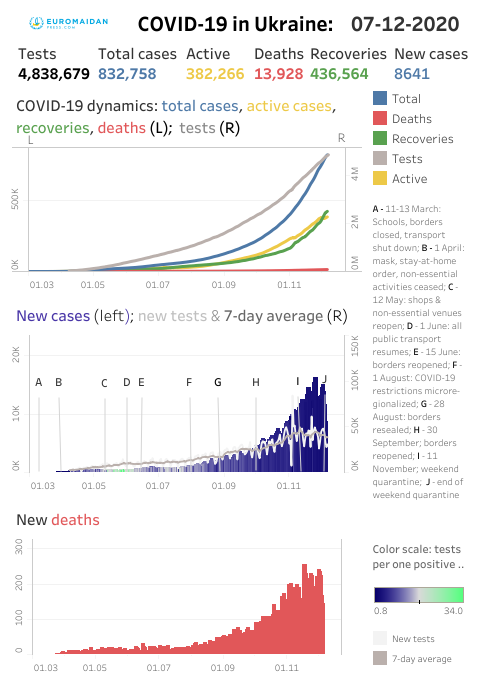
One million oxygen concentrators under the pavement
"Lesya, good evening! My name is Anya. My mom, 68, was admitted to the 4th hospital, where she was diagnosed with coronavirus and bilateral pneumonia. It was difficult for her, apart from the 39.7°C temperature, her blood pressure was around 200. Almost all the time she had oxygen because she simply suffocated without it. Yesterday she was discharged, but her saturation is 81 and it's hard to breathe."
Lesya Lytvynova gets this message late in the evening. Doctors are accustomed to giving out her telephone number to patients when they cannot help them. Her charitable fund Svoi ("Our own" in Ukrainian) has been dealing with palliative patients whenever Ukraine's dilapidated healthcare system failed for several years. But now, she has turned into a miner of salvatory oxygen for Ukrainians whose lungs have been ravaged by Coronavirus yet are discharged from the hospital to make space for new admissions.
"Call me. Now," Lytvynova, a 44-year-old former documentary filmmaker, tells Anya. Her mom will not survive without an oxygen concentrator. This device takes in air and removes nitrogen from it, leaving an oxygen-enriched gas for use by people requiring medical oxygen due to low oxygen levels in their blood.
The oxygen saturation indicator of a healthy person is 97-99%; 92% is an indicator for hospitalization. Yet Anya's mom was discharged before her lungs could draw the oxygen her body needs out of plain air. The hospital needed to make space for newcomers as daily COVID-19 cases in Ukraine topped 15,000.
But finding a hospital bed has been challenging on its own: Ukraine's capacities, in terms of space and medical personnel, are overwhelmed. And the existing hospital beds often don't have the oxygen required for patients with Coronavirus.
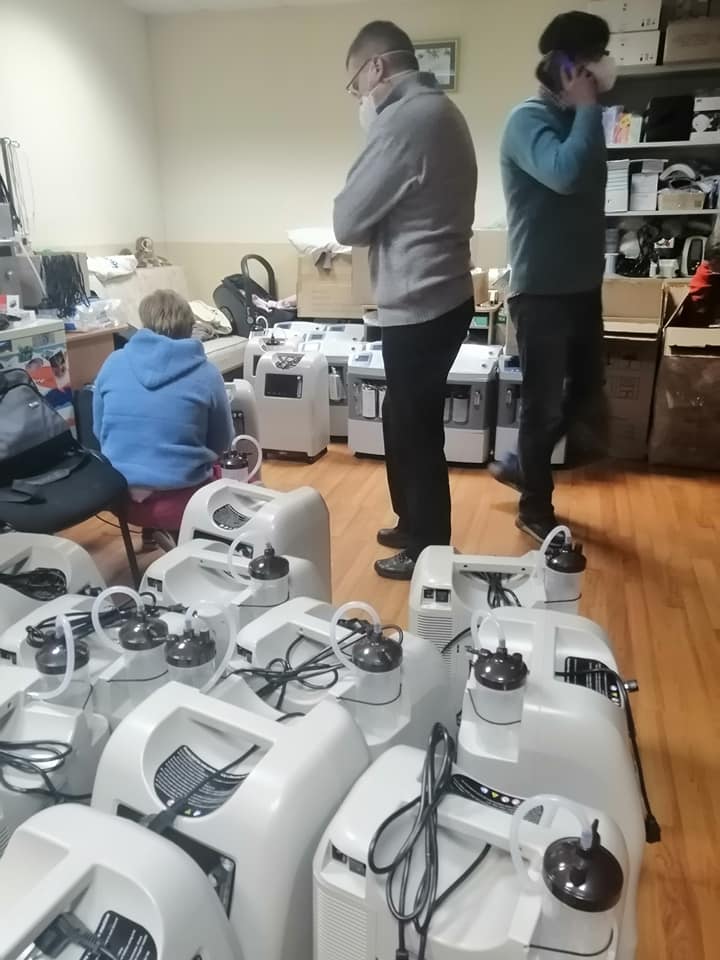
Anya comes to the Kyiv office and gets an oxygen concentrator for her mom to use at home -- upon the condition that as soon as the oxygen saturation climbs above 93%, they will return it to the fund, to be used by another patient.
Sometimes, the concentrators are returned under sad circumstances: many patients die. The damage to their lungs had been irreversible. Often, this is because they did not receive the oxygen they needed quickly enough.
Ms. Lytvynova's phone rings around the clock. Funds like hers have been making up for the Ukrainian government's ineptitude. Last month, Svoi handed out 224 oxygen concentrators to patients who were discharged but could not breathe. Some were crowdfunded by the readers of her page. Some were donated by responsible businesses like Nova Poshta, a Ukrainian delivery carrier.
The Ukrainian government had set aside a dedicated $2.3 bn COVID-19 fund in April 2020. However, it was used for many questionable expenses. As of October, roughly 20% of the fund was spent on paving new roads. 4% was spent on bonuses for law enforcement, while only 1% - for bonuses paid to medical staff. Social support ate up another 11%.
Only in October did Ukraine's government allocate $20mn to provide oxygen to COVID-19-designated hospital beds, and in November, $29mn was reallocated from roads to oxygenate hospitals.
"The state medicine lost a year!" fumes Iryna Koshkina, the executive director of Svoi. Together with Ms. Lytvynova, they counted how many oxygen concentrators could have been purchased for the funds the government spent on roads.
"One million! The money spent on roads could have purchased one million devices at market price. They could have been given to people with low saturation, freeing up space in hospitals, used in remote villages... so that family practitioners could effectively help patients who had been discharged but still need oxygen."
Volunteers as fire extinguishers
"We basically plug up holes, working in the regime of a fire extinguiser. But we can't just sit and do nothing, because people are calling us," says Nataliya Lypska, who heads a similar fund, "Wings of hope," in the west-Ukrainian city of Lviv.
In an interview with Den, she explains that oxygen shortage is a common problem for the Ukrainian medical system, and especially among palliative patients. While oxygen concentrators rented out to patients for home use are a common occurrence in EU countries, it is unheard of in Ukraine. But 80% of patients discharged from hospitals after COVID-19 require additional oxygen; some of them will require oxygen for life. Ms. Lypska made a proposal to the Lviv mayor's office that 20-30 concentrators would be purchased to circulate among such patients, but so far it hasn't gone far.
And so oxygen-dependent persons are left to meet their own needs. The concentrators are expensive, and often nowhere to be found. Because the state failed, as it often has happened in Ukraine after the Euromaidan revolution, the volunteers stepped in to plug in the holes. They cannot do otherwise.
Another volunteer on the COVID-19 front, Kateryna Nozhevnikova, runs a fund in the south-Ukrainian city of Odesa called the Monster Corporation, as in "people who do monstrous amounts of good." Thanks to a robust partnership with business, her fund is the second-largest donor to COVID-19-related needs, right under Ukraine's national oil and gas company Naftogaz.
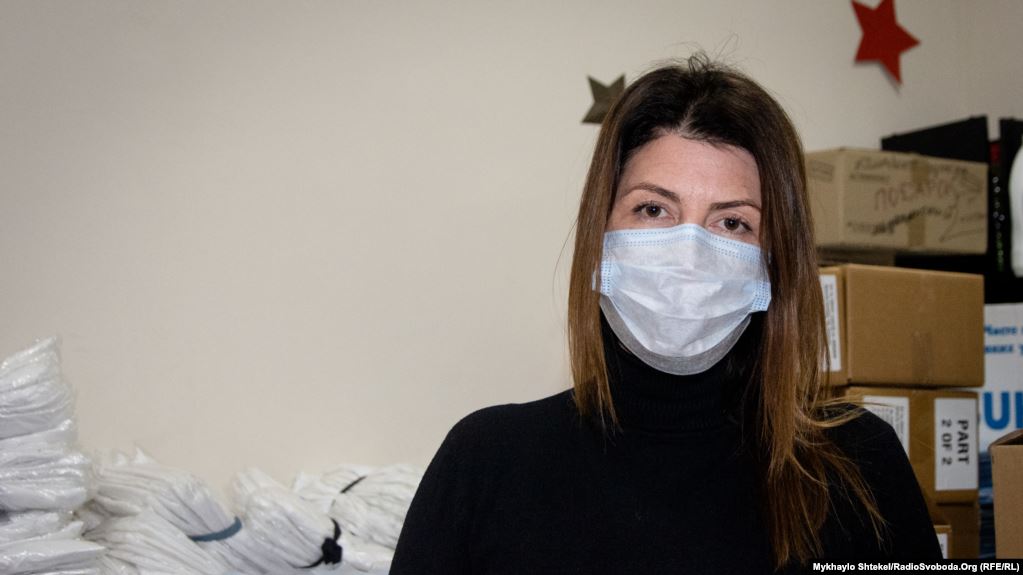
After the start of the pandemic, Ms. Nozhevnikova started gathering funds to fight COVID-19, support patients, doctors, and hospitals. In part, thanks to her efforts, hospitals in the Odesa oblast got a new oxygen manufacturer and are currently receiving hundreds of oxygen concentrators.
"We can help separate people, we can give out oxygen concentrators, but we can't resolve systemic problems. One state official once asked me: 'Why do you do all this?' I answered him then: 'Probably because you aren't doing some things'," Ms. Nozhevnikova told in an interview with RFE/RL.
The problems in her region are similar to all the other locations in Ukraine: lost time during the summer to set up efficient oxygen stations and distribution systems in hospitals, as a result of which many of the beds designated for COVID-19 patients don't have oxygen. This essentially renders them useless: the whole point of hospitalization with coronavirus is to make sure your lungs get oxygen.
Nozhevnikova confirms rumors that patients in hospitals share concentrators, breathing oxygen for limited amounts of time until their saturation rises above 85% -- far less than the 92% indicative for hospitalization. She tells that recently, a village doctor asked their fund for a concentrator so that COVID-19 patients, who now make up half of the village's inhabitants, would come and take turns breathing. She says that one brigade of medical staff now has to deal with 100 patients instead of the normative 20. Doctors are burned out and exhausted, heavy patients left unattended for the whole day.
Doctors under stress
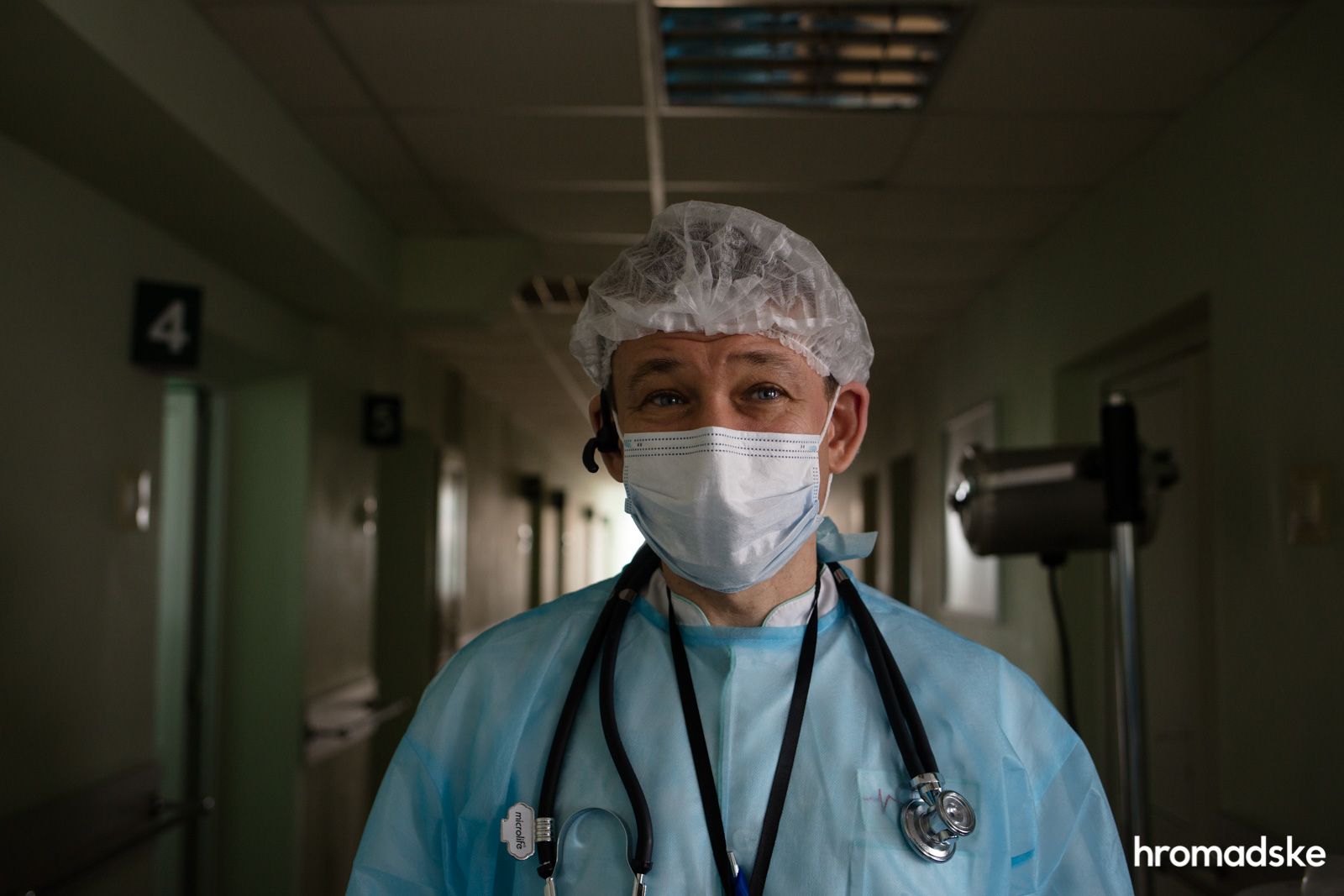
The crisis with oxygen is severe but at least possible to solve. More ominous is the perspective that Ukraine will be left without doctors. Recently, Poland, which has also been hard-hit by the pandemic, lifted its nostrification requirements for resuscitators, anesthesiologists, and junior medical staff -- they no longer need to confirm their diploma. It is more than likely that this will be an attractive proposition for Ukrainian doctors, who on average receive an extraordinarily meager $320 monthly salary, and despite lavish state promises of COVID-19 bonuses, often have problems with receiving them.
Overall, the situation in hospitals differs between various towns and cities, depending on the support that hospitals receive, both from the central and local governments. Euromaidan Press talked with medical assistants working in the Lviv city emergency hospital and a local hospital in a village district in the region. The situation in the two locations is drastically different.
Petro Hrudka, working in Lviv:
"[In the Lviv city emergency hospital], 180 patients with COVID-19 are currently hospitalized in all therapeutic departments. They receive oxygen and other medicine depending on the other illness they have. All patients are over 40, the majority are pensioners. The regular departments of the hospital are nearly full. However, additional temporary COVID-19 departments have recently been opened, almost doubling the capacity of the hospital.
The real problem now is to find the medical staff ready to work in the new departments. Managers have already started employing students of the last courses of the medical university as nurses. The support from the local municipality is obviously important. Not only for equipment but also in the form of additional payments to medical workers from the city council that were announced. The city council promised to pay a one-time premium equal to three monthly salaries."
Another medical worker who has spoken on the condition of anonymity reported that in a village district hospital the situation with salaries and equipment was spoiled by local corruption and poor local management:
"I received my state-sponsored salary bonus only three months later, when I submitted inquiries for public information to the regional state administration. I doubt that I would ever see my money if hadn't I sent this inquiry."
The situation with hospital equipment at this location was also poor. The hospital was carrying 50% more patients than its regular capacity and lacked sufficient oxygen for all of them the hospital. As well, the treatment protocol isn't yet well-designed.
"For example, the virus thickens the blood, to the extent of not being able to draw blood for analysis. Therefore, patients receive medicine to thin out the blood. The side effect is that many patients receiving such drugs can get blood clots and die from this. We had such cases."
The situation in south-Ukrainian Mykolayiv is even graver.
"Doctors and nurses just burn out at work. The shift lasts 2-3 days. They sometimes sleep on the floor. There are a lot of serious patients who are afraid to die. They need not only oxygen, they need someone to sit with them, beg them not to remove the oxygen mask so they don't suffocate. Tell them that everything will be fine, wipe away the tears. You need to change the oxygen masks: when it's easier for someone, let the others breathe. One lies with a saturation below 80 and watches his neighbor breathe oxygen. People literally crawl to the windows to open and to breathe. It's unbearable," a resuscitation nurse at a hospital told RBC Ukraine.
Read also:
- “Church restaurants” pop up as weekend quarantine deepens COVID-19 double standards in Ukraine
- These Rt graphs show how fast COVID-19 is spreading in Ukraine
- Ukrainian mayors rebel against COVID-19 restrictions and win
- COVID-19 disaster slowly brewing in Ukraine





